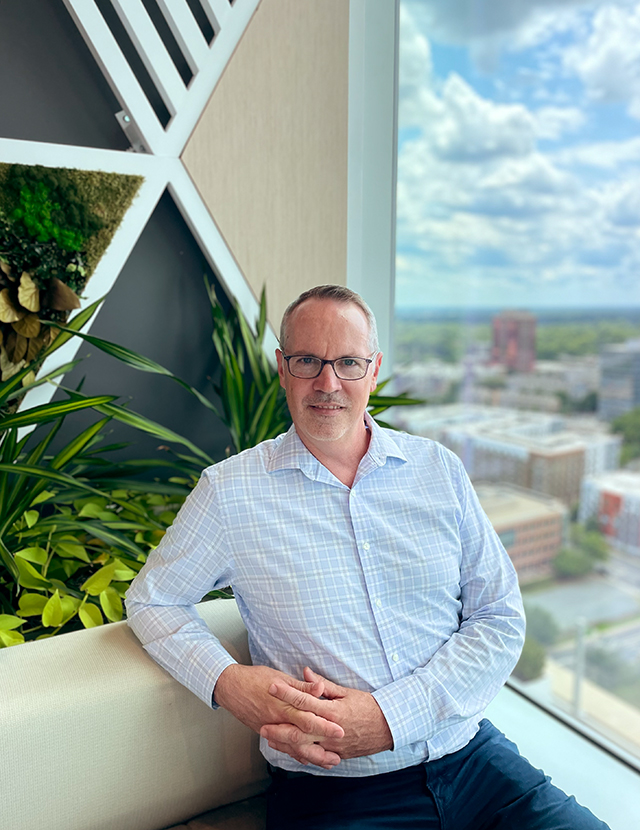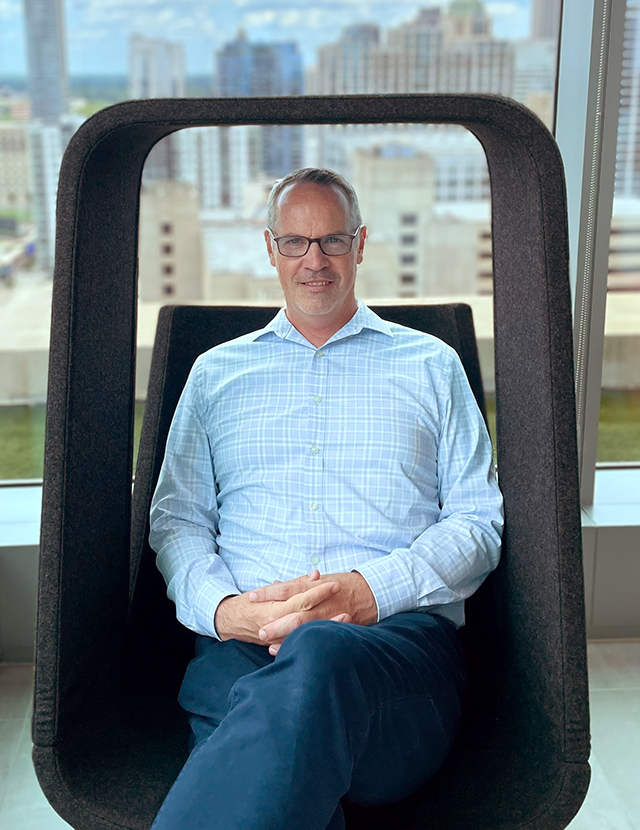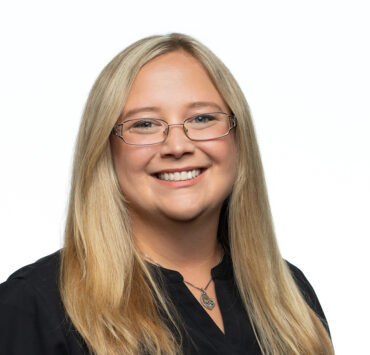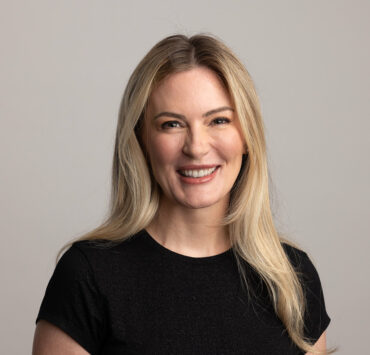Christopher Gregg knows a thing or two about caring for people. Originally intent on becoming a doctor, a difficult organic chemistry class made him realize that a medical profession wasn’t his path. He would have to find some other way to help—and he did, via a career in HR.
He stepped into his first role as a business compensation analyst at Morgan Stanley in 1998. Working for a big investment bank on Wall Street amid an internet boom leading up to 2000 introduced Gregg to keeping up with trends in a fast-paced business world, a skill he would rely on for the rest of his career.
“To understand global trends, you have to look inside and outside the company.”
Christopher Gregg
In 2003, he found his home at Honeywell, where he served in a wide range of leadership roles before taking on his current position as vice president of global total rewards. The organization operates in eighty countries and is home to about one hundred thousand employees worldwide, and Gregg oversees every aspect of total rewards for them all, a responsibility that requires a deep understanding of employee needs on a global scale in order to develop cohesive strategies.
“To understand global trends, you have to look inside and outside the company,” explains Gregg of his multifaceted approach. “Outside, we rely a lot on our third-party vendors and consultants who provide information of what other companies are doing and what trends they’re seeing. Our team focuses on global macro trends and how that might impact the company, HR, and total rewards.
“Internally, you need deep data analytics across the globe to understand things like the root causes of employee turnover and to develop practical solutions,” he continues. “We spend a lot of time understanding the effectiveness of our total reward programs and we put more focus, and funding, on the ones that work.”
Since the COVID-19 pandemic, one of those trends has been a rise in well-being benefits and offerings for employees, which have remained a priority for companies all over the world even as COVID numbers fall and public health emergency declarations expire.
At Honeywell, Gregg and other company leaders place financial, physical, mental, and individual considerations at the heart of the company’s wellness strategy and its initiatives—pillars that reflect the values that grew in prominence as employees took stock of what mattered in their lives during the crisis.
“During the pandemic what happened was mental health service providers and doctors were booked pretty quickly and it became difficult to get sessions. It made employers step in and help people get what they needed,” says Gregg, adding that physical health became a necessity too as most people had fallen out of their routines.
“At the same time, they wanted to take a look at their financial lives, saving for retirement, and how they could set themselves up for the future,” he adds. “As a company, we wanted to better coordinate across the globe and focus our efforts on those pillars while finding ways to make sure the strategy works and that we can measure it.”
Honeywell has made strides in advancing that strategy on many fronts. It’s beefed up marketing efforts to let employees know about the benefits they already have. It launched a contemporary website to give employees a comprehensive view of all benefits programs in one place. It developed a mental health navigator, which allows employees and their dependents to be easily connected to the programs they need. The company has also continued to build out its global wellness programs by finding creative ways to boost utilization rates.
Implementing global initiatives like this isn’t a one-time event, Gregg says. “As benefit professionals, we can’t launch a program by sending out an email and call it done. It’s a constant marketing and communication plan that you have to drive to really get the utilization and awareness that you want.”
In addition to transforming the company’s focus on well-being, Gregg shares that the pandemic changed aspects of his leadership style. “[It] inspired me to open up to my employees about my wellness journey,” he says. “It’s easy to send out an email or campaign to talk about a new program but when leaders talk about their own personal journeys it becomes more real for people. It helps provide more empathy towards what others are going through and helps you understand how you can help. Instead of just talking about programs, I shared with my team what I was doing for my personal health in ways I hadn’t before.”
One way that Gregg nurtures both his own wellness and his ability to lead in a global role is through travel. “The best thing about traveling is getting a different perspective outside of my own situation. It’s important to see how different people live,” he says. “Expanding one’s mindset through learning different cultures and how different people react to situations helps a lot in your own personal and professional life.”
Fidelity Health℠ is committed to providing comprehensive health benefits solutions that drive confidence among employers and employees. More than 1,600 organizations and millions of employees rely on us to help enroll in benefits, manage health expenses, and save for health care in retirement. Visit fidelityworkplace.com/s/health




